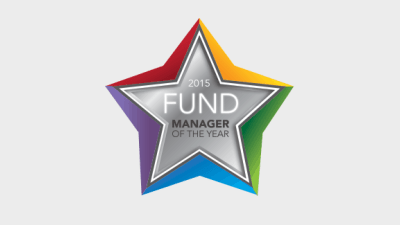Cromwell Phoenix Property Securities stays true to active management



For the second year in a row, the Cromwell Phoenix Property Securities Fund has been named the 2012 Money Management/Lonsec Fund Manager of the Year for Australian property securities.
The high conviction, ‘benchmark unaware’ manager outperformed the Australian real estate investment trust (A-REIT) market by 11.5 per cent after fees.
“The manager has increased its funds under management (FUM) over the past 12 months, and as a result, is now profitable,” Lonsec said.
Phoenix Portfolios managing director Stuart Cartledge said the fund is not constrained to own stocks just because they are big parts of the index, opting for a 20 per cent maximum stock holding limit to ensure strong diversification.
“We see property as a total return game. We intend to keep a strict limit on our funds under management to enable what I am calling a truly active management style,” he said.
In regards to his forecasts for the sector, Cartledge said his view is that the current discount that A-REITs are trading on will either close or become substantially reduced. In addition, the universe of stocks available for trade will increase.
“Property stocks are now back to their old style in the sense they have sensibly-geared balance sheets and it's a predicable income stream, and therefore it's not difficult to see a small but steady growth in earnings,” he added.
As a small boutique investment manager, the fund is jointly owned by Cartledge and Cromwell Property Group, which took an equity stake in the business in early 2009.
“In order to be able to run profitably with a low fund, you can't have too big a team and too big an infrastructure,” Cartledge said.
“As an investor, I would always prefer to go with a small manager with a low fund. I think they've got an edge just because of their nimble abilities to get in and out of things.”
EQT SGH Wholesale Property Income Fund came in second place in Lonsec’s analysis, spurred on by its long-standing distribution relationship with Equity Trustees.
“We are categorised as a value investor, but not deep value, as we aim to buy undervalued securities which have a positive or improving fundamental outlook,” said SG Hiscock & Company managing director Stephen Hiscock.
He said the fund will always look for fundamentally attractive REITs which are undervalued, but “what will inevitably change slowly over time – as it has done in the past – is how we measure fundamentals and valuation.”
In terms of its growth prospects, Hiscock said his investment team is starting see signs that investors are gradually warming again to this sector after suffering huge losses during the global financial crisis.
Third-placed finalist, Legg Mason Property Securities Fund said that it is its approach to research that has made the fund a standout in this sector.
“We focus on replacement costs and that probably got lost a bit during the financial crisis, so that's allowed us to really benefit as the market has refocused back on fundamentals and things have began to normalise again,” Legg Mason portfolio manager Ashton Reid.
“We’re consistently focussed on valuation and we've incorporated that quality as a second pillar in our investment process.”
Recommended for you
Evidentia’s chief investment strategist Nathan Lim has announced his retirement after a 30-year career.
GQG Partners has marked its fifth consecutive month of outflows as its AI concerns lead to fund underperformance but overall funds under management increased to US$166.1 billion.
Apostle Funds Management is actively pursuing further partnerships in Asia and Europe but finding a suitable manager is a “needle in a haystack”.
Managed account provider Trellia Wealth Partners, formed from the merger between Betashares and InvestSense, has appointed its first managing partner.











